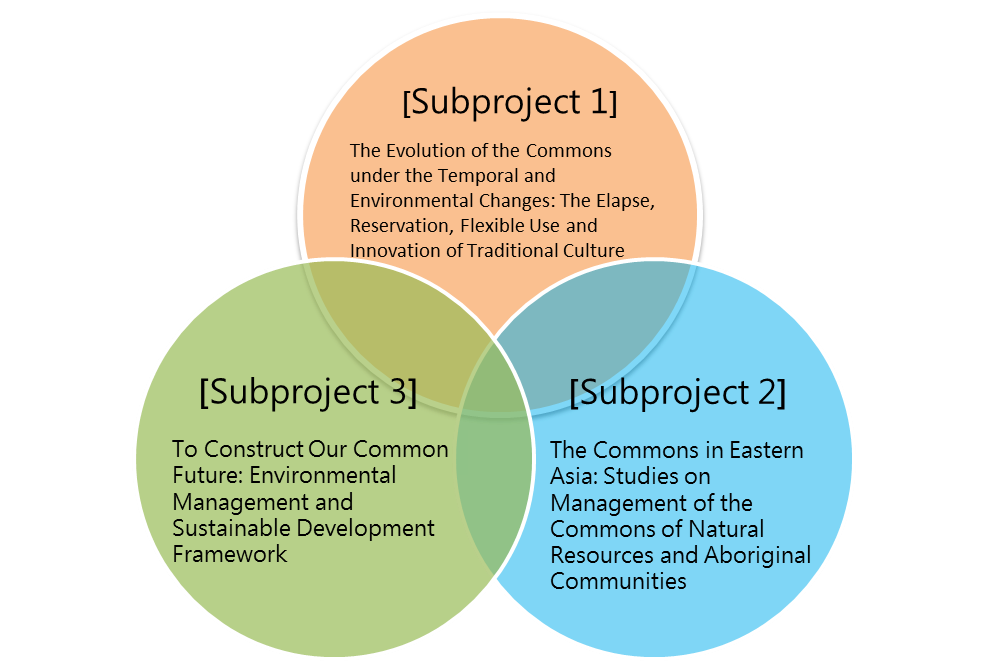Background Information
This proposal aims to explore whether the commons involving culture and natural resources and environments have had appropriate sustainable modes of regulations regarding the development of land, reconstruction of cities, and reservation of nature resources from a holistic perspective of eternal harmony between human and nature on the basis of humanistic solicitude. The findings of this study is to provide possible solutions to current problems related to distribution of resources, conflicts between tribes and communities and between different hierarchical social status, and the declination of the culture of minorities. This study also expect to provide significant evidence and possible solutions to both the government and the corporations involved in dealing with the commons, so that they may be aware of their responsibility in preventing turning the cultural and natural resources into calamities. The research team includes both domestic and international scholars from Japan and Korea, hoping that this collaborative research will enhance the international influences of National Taipei University.
Conceptual Framework
This proposal is composed of three subprojects investigating the above subject matters from different perspectives. The first subproject is designed to explore and investigate, from the established theories and current and historical facts, how to revitalize historic buildings more appropriately, how to reactivate traditional local industry, and how to embed new images into innovated tourism models. The purpose is on one hand to prevent cities and communities from losing their own unique feature while many cities are imitating other successful reconstruction cases, and on the other, to avoid the inconsistency or discrepancy among decisions made by different divisions, both governmental and private. The second subproject is to explore how the nonexclusive but rival resources can gradually shift from the paradigm of sate-centric or command-and-control to community-based polycentric, multi-level governance paradigm. Meanwhile, this project also explore to see the possibilities of legalizing relevant laws to support the latter. The third subproject focuses on environmental protection and reservation and corporate social responsibilities regarding reservation of natural resources environmental protection. This subproject also intends to explore possibilities in compromising the contradictions between the regulations from the government divisions and the interests of the corporations during the implementation processes. These three subprojects will integrate each other both in concepts, in theories, and in methodology, hoping that the findings from three different perspectives can provide useful solutions and suggestions to executives and scholars in charge of projects regarding sustainable development of culture, communities, and the commons.

